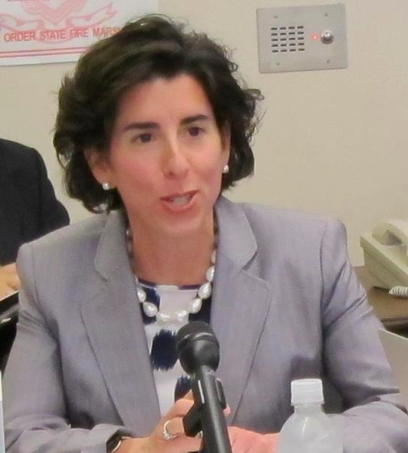When Rhode Island Governor-elect Gina Raimondo takes office this month, one of her top priorities will be negotiating a settlement with public employee unions in the lawsuit challenging the state’s 2011 pension changes.
From the Providence Journal:
Days away from taking the oath of office that will make her the first female governor of Rhode Island, Governor-elect Gina Raimondo anticipates that public-employee pensions will be one of the first big items she tackles. Again.
Specifically, she anticipates “early” action to try to forge a settlement in the state’s high-stakes legal fight with its public-employee unions over the 2011 pension overhaul she crafted as state treasurer. “It is a priority,” she said.
[…]
With the state already facing a potential $200-million deficit, she said: “It is in no one’s interest to have a pension system which is unaffordable and unsustainable because, if you do that, a lot of people will get hurt.”
“So I will be reaching out,” she said Wednesday in a brief but wide-ranging interview in which she confirmed her intent to try to reopen the pension talks and, in the interim, ask lawmakers to extend the Feb. 5 deadline for the submission of her first budget proposal.
[…]
“A lot of work and good will went into the terms of the settlement agreement,” said Raimondo, who hopes to revive it. “It gives them peace of mind that their pension will be there … and that it is affordable for the state of Rhode Island.”
Should the state lose the lawsuit, “there would almost certainly be a number of municipal bankruptcies … [and] if we don’t fix the system, eventually you are going to have to go to retired people and cut their pensions … and that would be a terrible thing.”
Raimondo spearheaded the state’s 2011 pension changes, which cut benefits, froze COLAs and raised the retirement age.
Photo by By Jim Jones (Own work) [CC BY-SA 3.0 (http://creativecommons.org/licenses/by-sa/3.0)], via Wikimedia Commons


